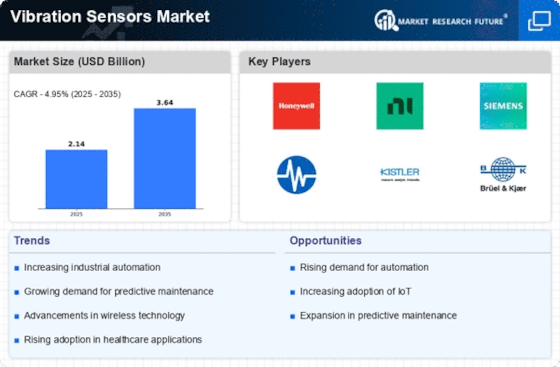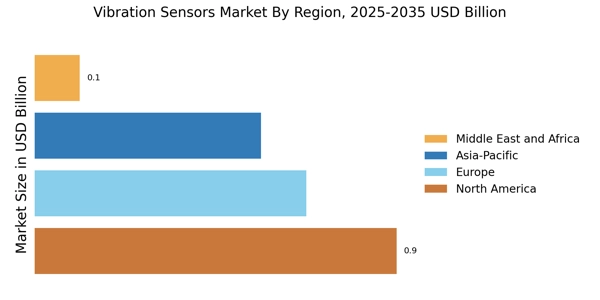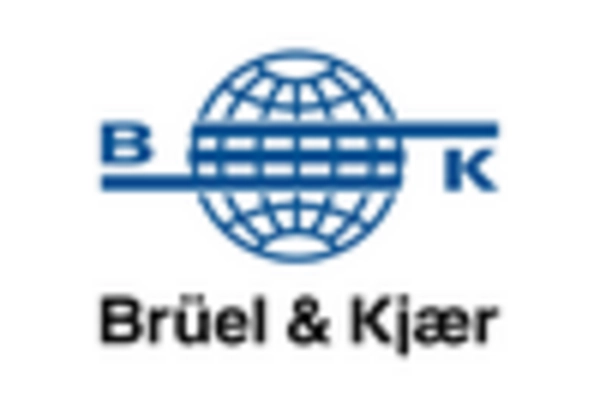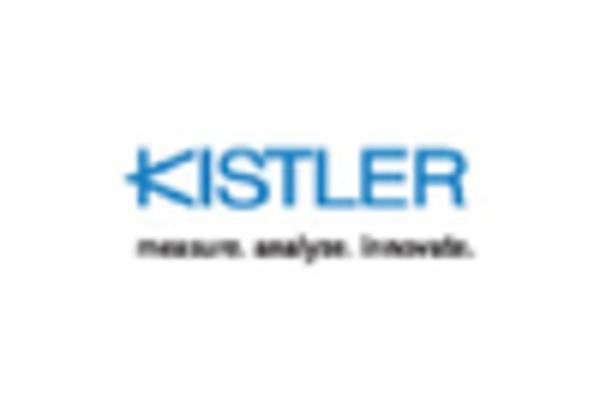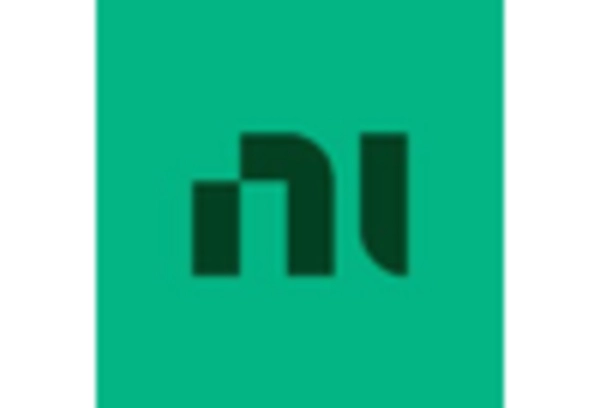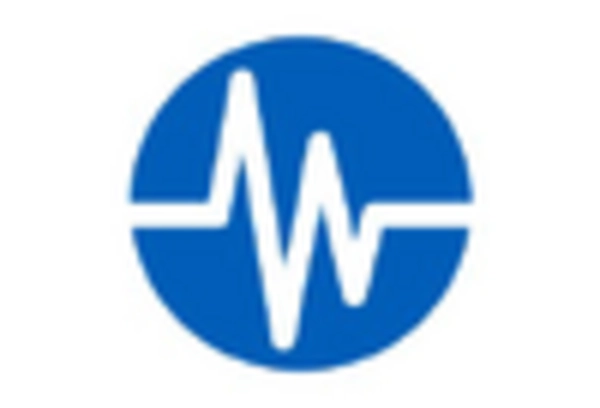Growth in Renewable Energy Sector
The growth in the renewable energy sector is emerging as a significant driver for the Vibration Sensors Market. As the world shifts towards sustainable energy sources, the need for reliable monitoring systems in wind turbines, solar panels, and other renewable energy installations becomes critical. Vibration sensors play a vital role in ensuring the operational efficiency and longevity of these systems. For example, in wind energy, vibration sensors are used to monitor turbine health and prevent costly failures. The renewable energy market is projected to reach USD 2 trillion by 2025, which suggests a substantial opportunity for vibration sensor manufacturers. This trend indicates that as investments in renewable energy continue to rise, the demand for vibration sensors will likely follow suit, contributing to the overall growth of the market.
Rising Demand for Predictive Maintenance
The Vibration Sensors Market is experiencing a notable surge in demand for predictive maintenance solutions. Industries are increasingly adopting vibration sensors to monitor equipment health and predict failures before they occur. This proactive approach not only minimizes downtime but also reduces maintenance costs. According to recent data, the predictive maintenance market is projected to reach USD 23 billion by 2025, indicating a robust growth trajectory. As organizations strive for operational efficiency, the integration of vibration sensors into maintenance strategies becomes essential. This trend is particularly evident in sectors such as manufacturing, energy, and transportation, where equipment reliability is paramount. The ability to detect anomalies in machinery through vibration analysis is transforming maintenance practices, thereby driving the growth of the vibration sensors market.
Increasing Focus on Industrial Automation
The increasing focus on industrial automation is a key driver of the Vibration Sensors Market. As industries strive to enhance productivity and reduce operational costs, automation technologies are being widely adopted. Vibration sensors are integral to automated systems, providing critical data for monitoring equipment performance and ensuring optimal operation. The industrial automation market is expected to grow to USD 300 billion by 2025, highlighting the potential for vibration sensors within this expanding sector. By integrating vibration sensors into automated processes, companies can achieve greater efficiency and reliability, thereby driving the demand for these sensors. This trend is particularly pronounced in sectors such as manufacturing, automotive, and aerospace, where precision and efficiency are paramount.
Technological Advancements in Sensor Design
Technological advancements in sensor design are significantly influencing the Vibration Sensors Market. Innovations such as miniaturization, enhanced sensitivity, and wireless connectivity are making vibration sensors more effective and user-friendly. These advancements enable real-time monitoring and data collection, which are crucial for industries that rely on continuous operation. For instance, the introduction of MEMS (Micro-Electro-Mechanical Systems) technology has led to the development of compact and highly sensitive vibration sensors. The market for MEMS-based sensors is expected to grow at a CAGR of 10% over the next few years. As industries seek to leverage these technologies for improved performance and reliability, the demand for advanced vibration sensors is likely to increase, further propelling the market forward.
Emphasis on Safety and Compliance Regulations
The emphasis on safety and compliance regulations is increasingly shaping the Vibration Sensors Market. Industries are under pressure to adhere to stringent safety standards and regulations, which necessitate the implementation of effective monitoring systems. Vibration sensors are essential tools for ensuring compliance with these regulations, as they help detect potential hazards and prevent accidents. For instance, in the oil and gas sector, vibration monitoring is critical for maintaining safety and operational integrity. The market for safety compliance solutions is projected to grow significantly, indicating a rising awareness of the importance of safety in industrial operations. As companies prioritize safety and compliance, the demand for vibration sensors is expected to increase, further driving the growth of the market.


